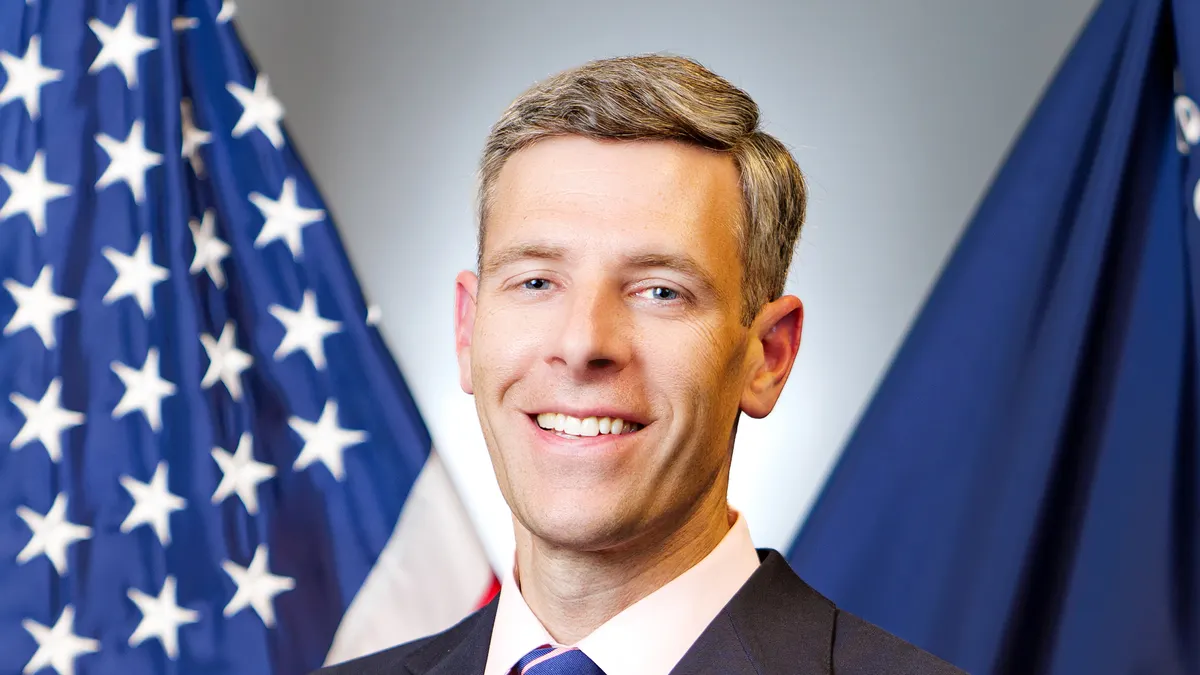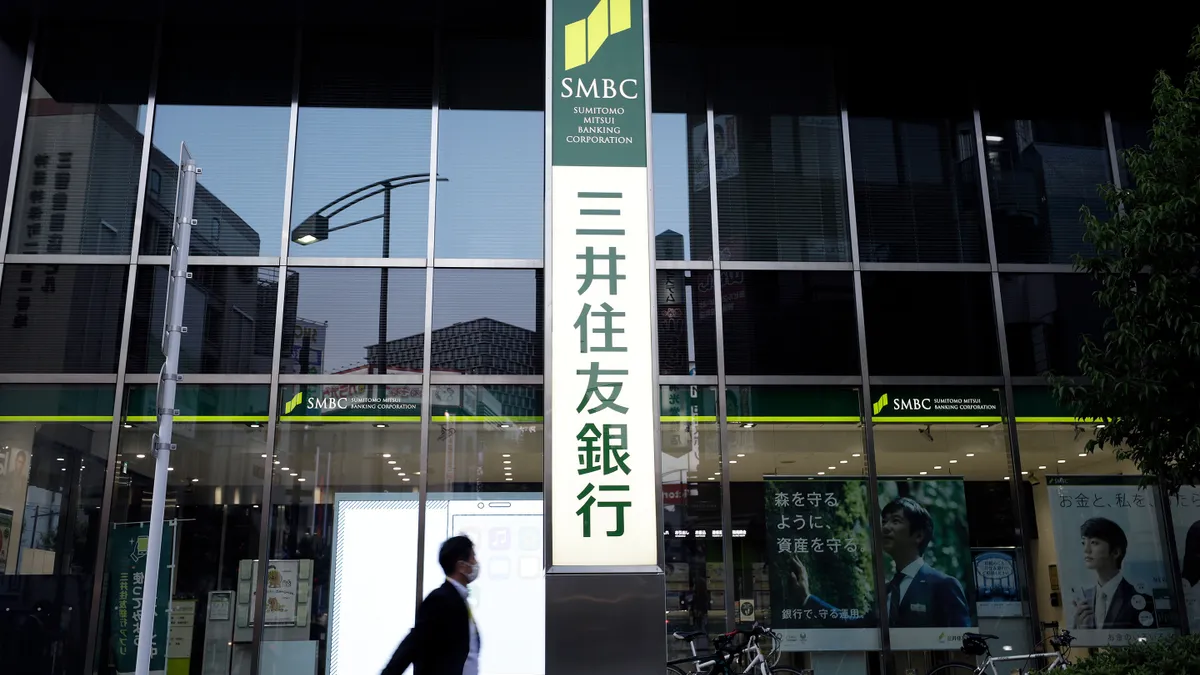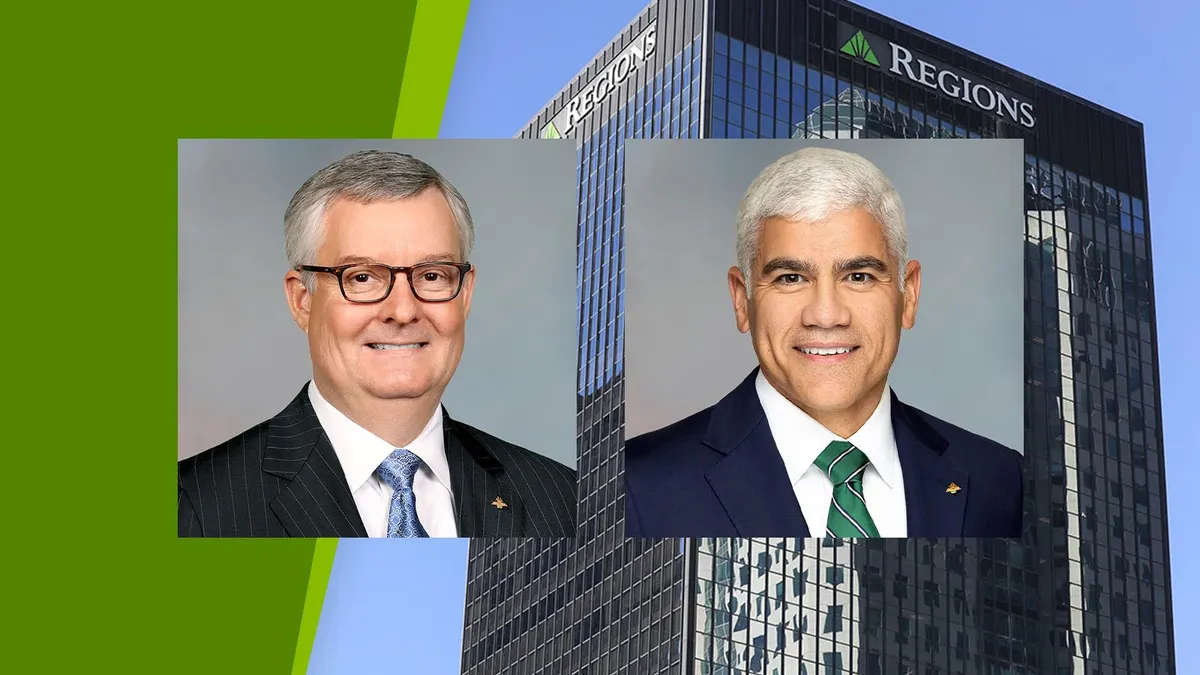Comptroller of the Currency Jonathan Gould, speaking Monday at the American Bankers Association annual convention, said one of the most important things he can do in leading his agency is to “reset that risk tolerance and take a much more thoughtful approach, rather than kind of a merely reactionary approach, to regulation and supervision going forward.”
Gould told the room of bankers he was aware of the “euphemistically unlevel playing field” between banks and credit unions.
But in July, shortly after he was sworn in as comptroller, a banker “quite pointedly told me that if things don't change, essentially, credit unions are going to replace community banks, and we will not have community banking in America anymore,” and it stuck with Gould.
In recent weeks, the Office of the Comptroller of the Currency has issued guidance and taken other steps aimed at easing the regulatory burden for smaller banks as federal banking agencies, under Trump appointees, have underscored the need for tailored regulation and supervision.
Those include eliminating exam requirements for community banks not specifically laid out by statute, a new OCC organizational structure that features a specific supervision group for community banks, and reducing rates in the general assessment fee schedule for smaller banks.
Gould, more than once, referred to the OCC’s actions thus far during his tenure as “down payments,” and promised more to come.
“Having been at the OCC in the last Trump administration, I know that every day counts and you need to act like it's your last day, more or less,” he told Naomi Camper, the ABA’s chief policy officer, during the Monday conversation. “I don't subscribe to the notion that you can only do three things and that's it. There's so much low-hanging fruit.”
The OCC is also looking into whether it can offer a simplified, strategic plan option for community banks related to Community Reinvestment Act performance, and is also pursuing reforms to the community bank leverage ratio, liquidity frameworks and third-party risk management, Gould said.
Gould emphasized that he’s keen to chart a new regulatory course. After the 2007-08 financial crisis, the OCC and other federal banking agencies “tried to focus on everything,” Gould said.
“The problem with focusing on everything … is that you don't focus on the things that most matter, right? If you're trying to be everything to everyone, you run the risk of being unsuccessful at your actual statutory mission, which is really safety and soundness and material financial risks,” he said.
A lack of supervisory focus was also evident in the regional bank failures of spring 2023, Gould said. “That is the cost of trying to do and be too many things to too many different people, that you miss what really matters,” he said.
Under the Trump administration, the OCC and other federal banking regulators seek to reprioritize, he said. That’s apparent through “hard-wiring in regulation” a definition of unsafe and unsound conditions and practices, and defining under what terms regulators can issue matters requiring attention.
“This is not, in any way, to weaken our supervision. It is to focus it, to make it stronger, on what matters,” Gould asserted. “It's about prioritization of our finite resources as well as yours. It's about not diluting our message, so that when we tell you something, you will know it really goes to the heart of your business and to your financial safety and soundness.”
Gould said he views his role as one that should facilitate paths to the industry’s long-term viability. With regard to stablecoins, for example, Gould wants to make sure it doesn’t become “the exclusive purview of just a handful of very large banks.”
“Whether we're talking about new technologies or new activities, including, for example, things like payment stablecoins or the technology that underlies them, I want to make sure that we're not creating a framework in which, again, we have this two-tier system within which only the very largest banks have the risk management sophistication, or the fortress balance sheets, such that from the supervisory perspective, they're OK in moving forward,” Gould said.
That “creates the very unfair and unlevel playing field in which only kind of the privileged few can engage in certain activities,” he added.
Related to stablecoins, the ABA’s Camper noted trade groups are concerned about deposit loss and want Congress to ensure there are limits on the yields stablecoins can offer consumers. Gould sought to allay those concerns.
“If there were to be a material impact to deposits as a result of payment stablecoins, or a significant impact to a subset of the banking system as a result of payment stablecoins, it would not happen in unnoticed fashion,” he said, adding that it wouldn’t happen overnight, and elected officials, trade associations and the federal banking agencies all “would have something to say about that.”
“Certainly, if there's a material flight of deposits from the banking system, that sure sounds to me like safety and soundness concerns,” Gould said.



















